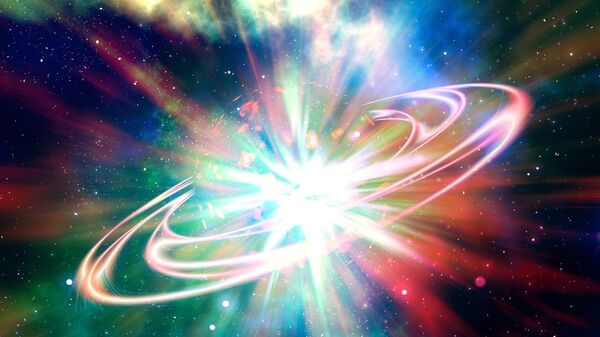The emergence of enigmatic substance known as dark matter during the dawn of our universe might've been a product of certain processes that occurred shortly after the Big Bang, Live Science reports citing a new study published in The Physical Review Letters journal.
According to the media outlet, Andrew Long, an assistant professor of physics at Rice University in Houston and co-author of the new research, pointed out that while scientists already know "how much dark matter our universe contains", the same cannot not be said about its nature and origins.
"Is dark matter a collection of elementary particles?" he mused. "If so, what are the properties of these particles, such as their mass and spin? What forces do these particles exert and what interactions do they experience? When was the dark matter created, and what interactions played an important role in its formation?"
In order to answer these questions, Long and his colleagues, physicists Michael Baker at the University of Melbourne in Australia and Joachim Kopp from the Johannes Gutenberg University of Mainz in Germany, turned their attention to the "earliest period of the universe's formation, a fraction of a nanosecond after the Big Bang started".
"In addition to all of the elementary particles known today, there's reason to imagine there were other particles present during the early universe, such as dark matter," Long remarked.
The researchers postulate that immediately after the Big Bang, “the plasma underwent a phase transition similar to what happens now when matter moves from one state to another”, as the media outlet puts it, with “bubbles of cooled plasma” expanding and merging “until the whole universe transitioned to a new phase”.
"As these droplets expanded throughout the universe, they acted like filters that sifted dark matter particles out of the plasma," Long said. "In this way, the amount of dark matter that we measure in the universe today is a direct result of this filtration in the first fractions of a second after the Big Bang."

